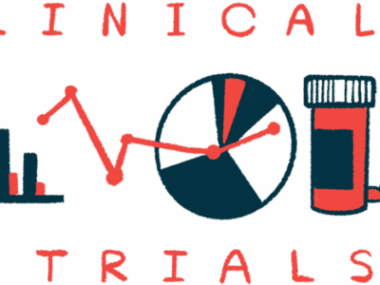Potential biliary atresia treatment AX-0810 to enter clinical testing
Experimental drug also aimed at treating primary sclerosing cholangitis
Written by |

AX-0810, an experimental medication Proqr Therapeutics is developing for biliary atresia and another liver disease called primary sclerosing cholangitis (PSC), is about to enter clinical testing.
Proqr recently announced that regulatory authorities in the European Union have given the go-ahead to launch a Phase 1 clinical trial to test AX-0810 in healthy volunteers. According to a company press release, the trial will take place in the Netherlands and will assess AX-0810’s safety, tolerability, and pharmacological properties.
Proqr is hosting a virtual investor and analysis event, titled “Entering the Clinic with AX-0810: Establishing Safety, PK, and the Biomarker Roadmap for Proof of Target Engagement,” to discuss the trial further. Registration for the Nov. 3 event is available online.
AX-0810 aims to reduce buildup of bile in the liver
The liver has many functions that are crucial for health, one of which is to make bile, a digestive fluid that helps break down and absorb fats and fat-soluble vitamins. Bile is shipped out from the liver to the intestines through a series of tubes called bile ducts.
Biliary atresia is a congenital condition where the bile ducts are blocked or entirely missing, so bile cannot flow properly — a condition known as cholestasis. As a consequence, bile builds up to toxic levels in the liver, which can lead to liver damage.
First-line treatment is usually a surgical procedure that aims to restore bile flow, but many patients continue to experience cholestasis.
PSC is an autoimmune liver disease marked by chronic bile duct inflammation and scarring that leads to cholestasis. There are no approved treatments for this disease, which can also set the stage for liver failure and cancer over time.
By targeting a key [disease-associated] process that drives disease progression, AX-0810 has the potential to be disease-modifying.
AX-0810, which belongs to a new class of potential treatments called editing oligonucleotides, aims to reduce the buildup of bile in the liver by targeting a specific RNA in liver cells. RNA is the intermediate molecule derived from DNA that is used as a template for protein production.
The experimental therapy is specifically designed to alter the RNA that provides instructions to make NTCP, a protein involved in the uptake of bile acids back into liver cells. Bile acids are bile’s main component.
This RNA alteration triggers liver cells to make a version of the protein, called NTCP Q68R, that allows less bile into liver cells. Some people naturally produce this version of the protein, and “report no clinical symptoms related to bile acid level concentrations, ”according to Proqr’s website.
Therefore, AX-0810 is expected to help reduce bile buildup in cholestatic diseases like biliary atresia and PSC.
“By targeting a key [disease-associated] process that drives disease progression, AX-0810 has the potential to be disease-modifying,” Proqr stated in the press release.



